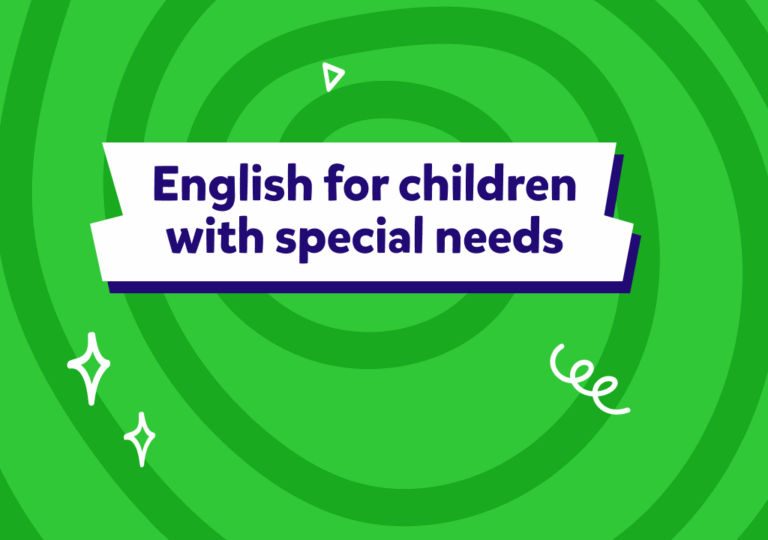In this article a Novakid teacher gives her recommendations on how to create inclusive environment for ESL students with special needs.
How Many Hours of Study Do You Need to Master English?
- Learning English takes time and consistency: Fluency depends on regular practice, effective study habits, and the right learning methods.
- Plan your study strategically: Breaking study into daily, weekly, or monthly routines and balancing reading, writing, listening, and speaking improves progress.
- Use effective strategies and stay motivated: Active learning, immersive practice, conversation classes, and tracking progress help maximize study hours and maintain motivation for long-term fluency.
How long does it take to master English? This is a question many learners ask when they start studying the language. Knowing how long it might take is important because it helps set realistic goals, stay motivated, and plan study time.
Mastering a language depends on several factors, though, including consistent practice, effective study habits, and using the right learning methods. Everyone’s journey is different, but understanding these elements can help you make faster progress. Many learners ask questions like “How many hours to become fluent in English?” or “How long does it take to learn a language fluently?” These are important considerations for anyone aiming to become confident in English.

Factors That Affect How Long It Takes to Learn English
When thinking about how long it takes to learn English, it’s important to remember that everyone learns differently. Several factors can affect learning speed, including age, prior language experience, how consistently you study, and your motivation.
For example, someone who studies a little every day may progress faster than someone who studies irregularly, and learners who already know a second language often pick up English more quickly.
Estimated Hours to Become Fluent
Language experts provide general estimates for how many hours it takes to become fluent in English, based on levels of fluency such as the CEFR (Common European Framework of Reference for Languages). Reaching a basic conversational level might take around 300–400 hours of study, while achieving advanced fluency could require 1,000–1,500 hours or more.
While these numbers are just estimates, they show how study time increases from beginner to advanced levels. Understanding roughly how many hours it takes to learn a language fluently can help learners plan their study routine and set realistic goals for becoming a master.
How Many Hours Should I Study for English?
Once you have an idea of the total hours needed to become fluent, the next step is planning your study schedule! Breaking your practice into daily, weekly, or monthly routines makes learning more manageable and helps you stay consistent. For example, studying a little each day is often more effective than long, irregular sessions.
It’s also important to balance your practice across speaking, listening, reading, and writing. This ensures all language skills improve together, helping you become a well-rounded English learner. For more strategies on speeding up your learning, check out our article on tips for how to learn English quickly.
Strategies to Maximize Study Hours
So, how do we make the most out of our study time? Maximizing your English hours means using techniques that make learning more effective and enjoyable. Focusing on active learning rather than just passive study can help you make faster progress and get more out of every hour you spend practicing English. Try some of these tips:
Immersive practice: Engage with English as much as possible by watching shows, reading books or articles, and speaking regularly. Being around the language as much as possible helps you understand context, pick up natural expressions, and improve comprehension.
Using spaced repetition: Instead of trying to memorize long lists of vocabulary words at once, use spaced repetition to review over time. This method strengthens memory and ensures words stay in your long-term memory.
Joining conversation groups/classes: Practicing with others is an important part of improving your English skills. Conversation groups or English classes give you a chance to practice in real-life situations and get feedback. To take your learning further, consider booking a trial class with Novakid, where you can practice English with expert teachers and interactive lessons.
Tips for Staying Motivated During Your Learning Journey
Before we go, you must remember, staying motivated is one of the most important parts of learning English. Tracking your progress can help you see how far you’ve come, which keeps you encouraged. Setting small milestones, like finishing a chapter in a book or learning 20 new words, gives you clear goals to work toward. And celebrating small wins along the way makes the process enjoyable and rewarding.
Consistency is more important than short bursts of intense study. Practice a little every day, and your English skills continue to grow over time!
As in can see, mastering English takes time, practice, and smart study strategies, but the journey is achievable with patience and dedication. Remember, every hour of consistent practice brings you closer to your goal, and taking small, steady steps (like studying with Novakid) is the key to long-term success.
Kids with ADHD often struggle with paying attention, staying organized, and controlling their impulses. By understanding these challenges, parents and teachers can work together to better support children with ADHD in their ESL learning journey.
Understanding English verb tenses can be challenging. Out of 12 main English tenses we will look into five that confuse people the most.
Celebrating holidays isn’t just about having fun—it also plays a key role in helping students grow both as language learners and global citizens.
Learn how to spell 20 of the most difficult English words correctly. Tips for tricky, weird, and commonly confused words.
Follow a clear English learning plan with the correct order for building skills. Learn how to set goals, study vocabulary, improve speaking, and create your own English language learning program.









































